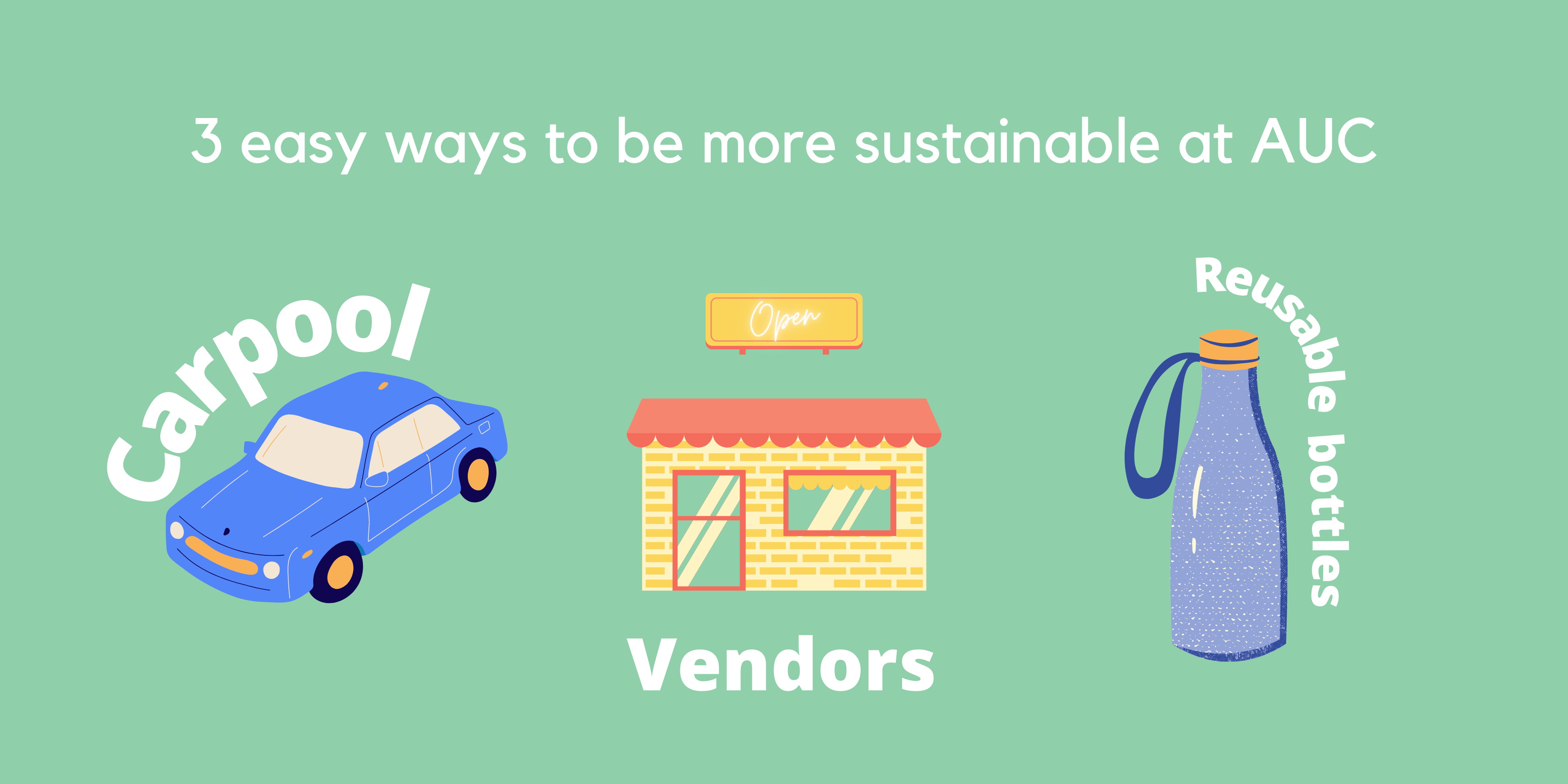By: Malika Ferot
@Malikaferot
The Princeton Review Guide to Green Colleges has for the sixth year in a row named AUC as part of 420 universities recognized for exceptional sustainability practices.
The Guide is a list of schools which have made strong commitments to the environment and sustainability. AUC is one of the very few non-U.S based universities to make the list this year – and the only school in the Middle East and North Africa.
This is largely thanks to the extensive and consistent efforts of AUC’s Office of Sustainability, which has been operating since 2011 toward reducing the university’s carbon footprint and has, among other things, been able to cut the university’s energy consumption by 30% since then.
By being the first university in the region to produce a carbon footprint report, AUC is leading the way on greener and more sustainable education.
However, challenges remain. While making huge efforts and progress in the past 10 years, there are still many parts of the AUC lifestyle that call for change.
Based on their own estimates, Quick24 alone are selling roughly 20,000 water bottles a month. Combined with all the other outlets selling bottled water – the food courts and SU market – that is a considerable amount of plastic usage.
We all know how the AUCians love their iced coffee; Cilantro and L’aroma estimate to be selling on campus at least 100,000 such beverages a year.
The iced coffee comes in a vessel comprised of three plastic parts – the cup itself, the lid and the straw.
Given the high consumption of this beverage, that’s a hefty amount of plastic needing to be recycled.
However, even though disposable plastics are the obvious tangible delinquent, there are a lot of other, and maybe more “invisible” factors.
According to the Sustainability Office’s carbon emissions report from this year, which is available on AUC’s website, 41 percent are actually coming from our HVAC – air conditioning and heating.
Then there’s our trash – and more specifically, how we’re handling recycling efforts. Plastics are not inherently bad, as long as they are recycled. The problem is that not all plastics at AUC are.
According to the Director of the Office of Sustainability Yasmin Mansour, only 25-30 percent of all trash on campus ends up being recycled.
“This is a very small number … I am sure we can do better than this,” Mansour told The Caravan.
This is a result of not only the fact that our iced coffee plastic cups often end up in the wrong bins, but also that all trash cans inside the buildings are not being sorted, and therefore not recycled either, adds Mansour.
So the question is, how can we all be more sustainable at AUC?
Mansour explains that along with sorting our trash correctly, it is important that we consume water and energy responsibly, and remember to turn taps off when we leave. AUC can become more sustainable by adopting changes in daily routines such as:
- Carpooling
A great way of saving energy and money, and carpoolers get free parking at AUC.
Check out the carpooling groups on Facebook.
- Choosing the right vendors
Apart from bringing your own food in reusable containers, you can reduce your disposables by choosing the right vendors. Tabali and TBS are using reusable bags and recyclable cups. Just make sure you actually reuse and recycle them.
- Reusing bottles
Use the water dispensers. Get yourself a fashionable reusable bottle and use one of the many dispensers around campus. This reporter finds the one across from the School of Science and Engineering building the most cold and crisp.
Other than making small changes to our daily routines, a big impact could come from keeping the conversation going.
“It is very challenging to work with sustainability in a place of education, because people change all the time,” Mansour added.
Mansour believes we can all make a difference together by doing our own individual part, and informing incoming freshmen on the tips every year, making sure that they too know how to be sustainable at AUC.
